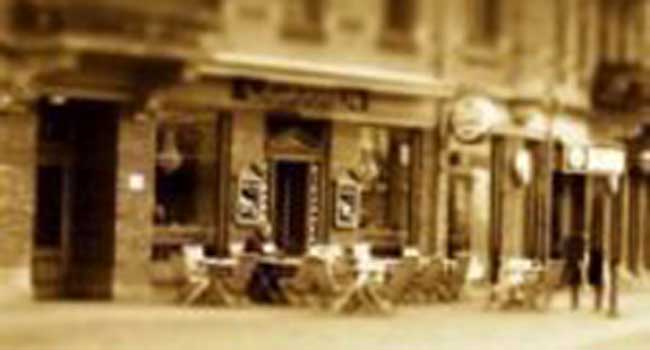 Outsiders make great literary characters. Their otherness makes them naturally interesting characters, and it’s also fascinating to see “normal” people and social conventions through their eyes, shining a fresh light on things that usually seem very familiar.
Outsiders make great literary characters. Their otherness makes them naturally interesting characters, and it’s also fascinating to see “normal” people and social conventions through their eyes, shining a fresh light on things that usually seem very familiar.
Also, don’t we all feel like outsiders sometimes? I know I do, and always have. And I’ve sometimes been surprised to hear people who I thought were very gregarious and well-adjusted admit to feeling the same thing, at least on occasions. So literary outsiders give us someone to root for, and perhaps in a perverse way make us feel less alone. Even if we can’t quite fit in the mainstream, we can at least feel like insiders among the outsiders.
Cameroonian-Swedish writer Ernest Alanki’s debut novel The Chocolate Shop Perverts gives us Martin, the prototypical outsider. He’s a young man who sits alone in an Edinburgh chocolate shop all day every day, talking to no-one, a young man whose family members are either dead or in jail, whose interactions with other people frequently result in awkwardness, confusion and/or humiliation, and whose closest relationship is with a laptop called Sam.
In an interview, Alanki said he got the inspiration for the novel, and for the character of Martin, when visiting an Edinburgh cafe with friends, a place buzzing with laughter and noise.
But in this crowd there was a young man that was totally left out and you could see his pain, his suffering. I don’t know what it was but you could see he was all alone. He just stood out to me and so I turned to my friends and said you could write a book called the chocolate shop perverts and they said Ernest you’re crazy. So the book came to me then and I just wanted to write a book about a young man growing up in society where he is lost having experienced a lot of personal tragedies and problems.
Like Holden Caulfield, Martin rails against the phoniness of the everyday. Like Meursault, he refuses to (or perhaps doesn’t know how to) adapt his emotions and behaviour to the expectations of those around him, and suffers as a result. His life is tormented, dismal, small.
And then…
And then he meets James, and everything changes. James is strong, and confident, and makes Martin feel strong and confident too. James protects him, and teaches him how to protect himself, how to get what he wants, how to avenge himself against those who’ve wronged him (it’s a long list). He becomes rich, and popular, and can seemingly have whatever he wants.
It sounds like classic “revenge of the nerd” stuff, but in fact it’s very well handled, because for a long time it’s not entirely clear how much is real and how much is fantasy. The change in Martin’s life is so extravagantly unbelievable that we know something else is going on, but we’re not sure what. Is the whole thing a figment of Martin’s imagination? Does James really exist, or does Martin just want him to exist? There are lots of possibilities, and as the plot becomes more and more far-fetched, it gets more and more fun to try to work out how it will all be resolved.




There are 8 comments
Wonderful review, Andrew! This looks like a very interesting book. I love stories about outsiders. I loved your comparison of the main character in this book with Holden Caulfield and Meursault. It is interesting that the story takes an interesting turn and we are left guessing whether what is happening is real or imagined. I wonder how things turned out in the end for Martin.
Thanks Vishy! Yes, it’s a very interesting turn. I was wondering how the book would end, and that twist really took it to a different level.
Great commentary Andrew.
I feel the same. I am outgoing and do well in social situations and in society in general yet in many ways I am an outsider. Indeed that is one of the reasons why these books are so compelling.
I like the fact that it sounds like the plot involves a lot of ambiguity as to what is real or not.
Thanks Brian. I think that most of us feel like outsiders sometimes. Maybe being introverted or extroverted are just different strategies for hiding our insecurities!
Truely, i feel like an outsider sometimes because almost every body around me things i am the perfect, caring and compationate type. I tell my wife every day that i need to do somthing bad just to fit inwith everyone around me.
It’s interesting, Faarman, how many of us feel like outsiders. Normality can be quite alienating, and I think a lot of people have interior lives very different from the image they present to the world. Thanks for commenting!
Don’t all book lovers feel like outsiders in this world?
It seems to be an intriguing book. I like the idea of not knowing if his transformation is real or wishful thinking.
Emma
Haha, I never thought of it that way, Emma. But I suppose we are outsiders, really. The insiders are all on YouTube 🙂